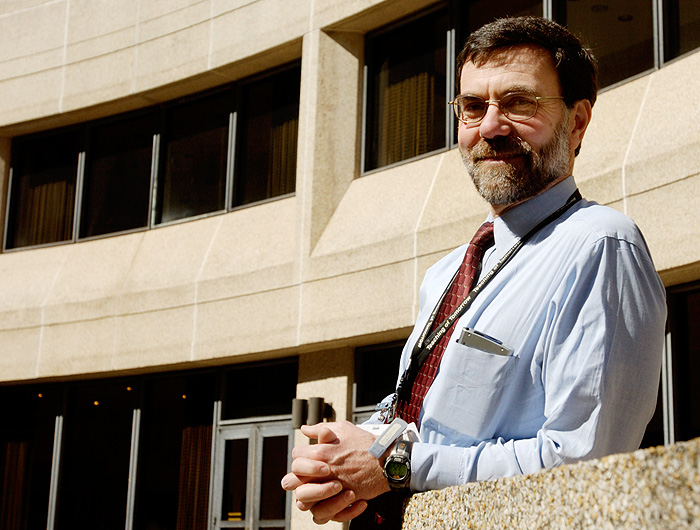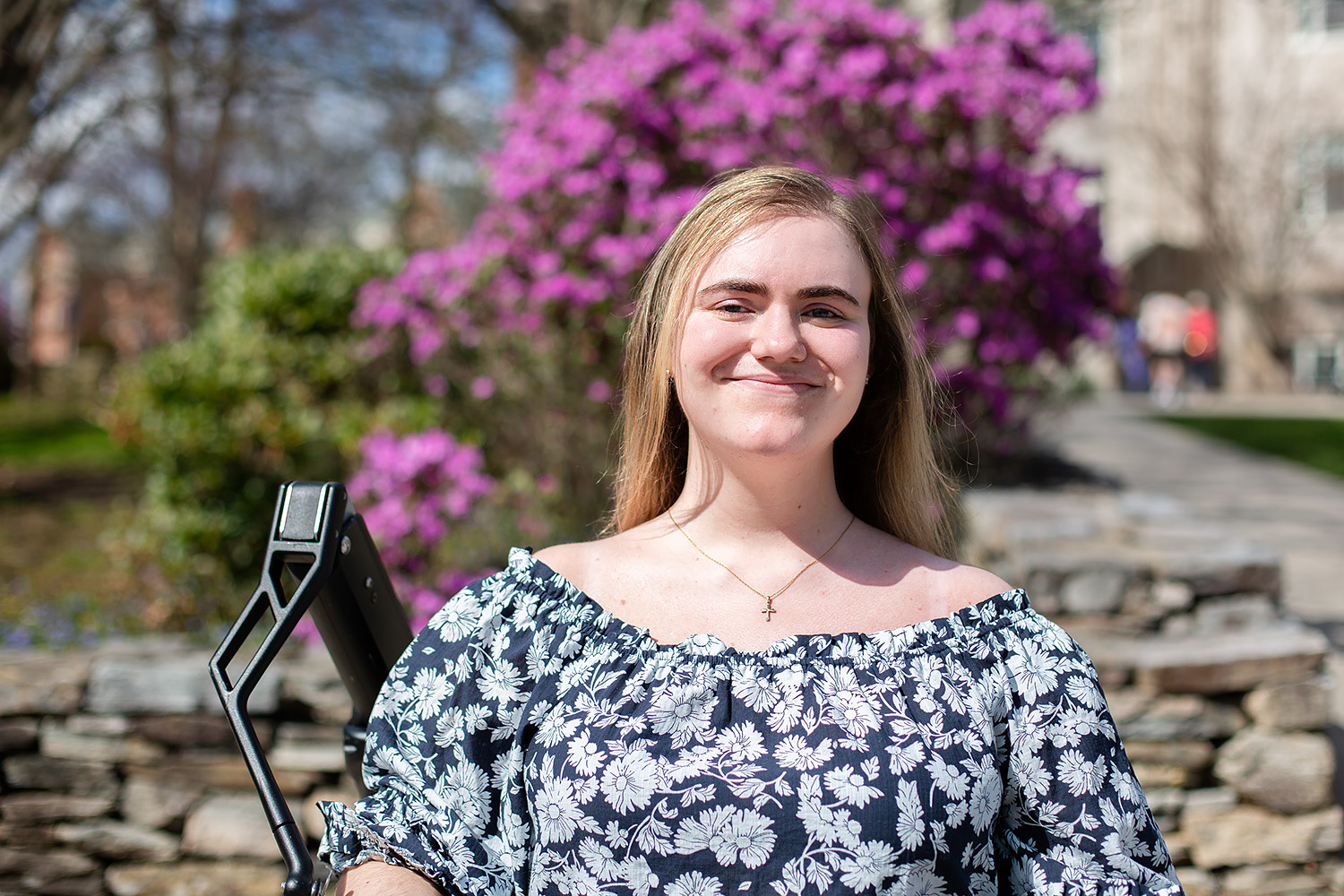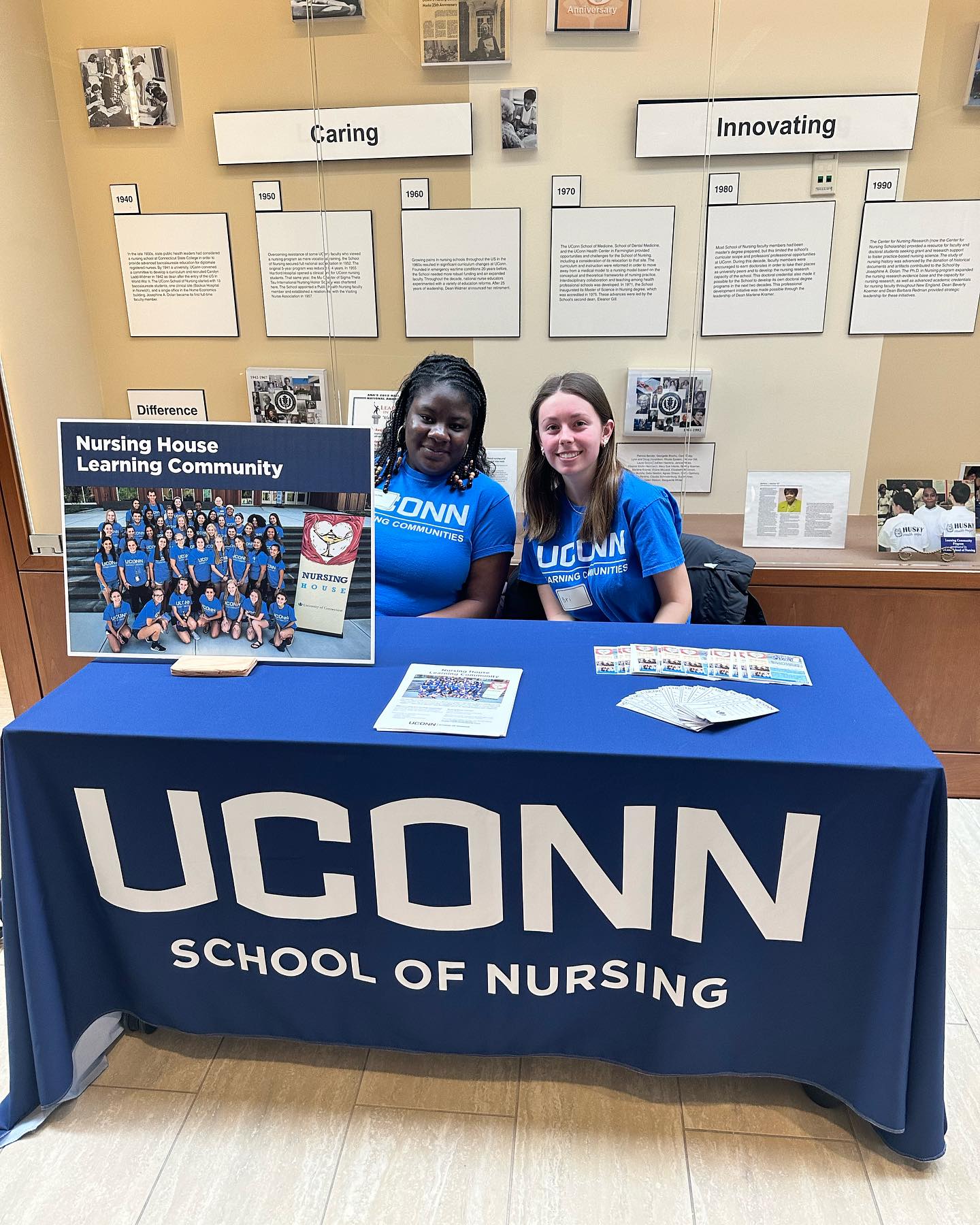
Disparities in health and health care endemic in Hartford and across the state and country affect the lives of millions. A new $561,000 grant from the Connecticut Health Foundation is supporting a groundbreaking project led by UConn Health Center professors Robert Aseltine Jr. and Dr. Bruce Gould, aimed at improving care for disadvantaged patients in Hartford.
“The Connecticut Health Foundation is interested in projects that really impact patient care and really impact patient outcomes,” says Aseltine. “This grant will be instrumental in helping us develop an assessment tool to improve health risk screening for disadvantaged patients.”
Patricia Baker, president and CEO of the Connecticut Health Foundation, says, “This project aligns with the foundation’s 10-year strategic objective, which is to improve the quality of health care systems that enhance patient/provider interactions toward more equitable patient treatment and outcomes in health care settings that serve large populations of patients of color.”
Disadvantaged populations and people of color have lower rates of health risk screening and poorer health outcomes than other patients. Their incidence rates for disease, injury, and conditions such as homelessness are exponentially higher. The result in population centers like Hartford is poor overall health in the community.

“Hartford is one of the poorest cities of its size in the country. People living below the poverty line are at high risk for numerous health problems,” says Gould, who is also associate dean for primary care at the School of Medicine, medical director for the Hartford Department of Health and Human Services, and medical director of the Burgdorf/Bank of America Health Center. Burgdorf is a clinic in Hartford run jointly by the UConn Schools of Medicine and Dental Medicine and Saint Francis Hospital and Medical Center.
Research shows that taking a full family and personal history makes a significant difference in the care that patients receive and their long-term well-being. Yet on the whole, primary care physicians lack the time to complete all the recommended screening for preventable diseases with every patient. A primary care physician with an average caseload would have to spend seven and a half hours per day doing risk assessments alone to meet the recommendations cited by evidence-based research.
Aseltine and Gould’s project offers a solution: a computer-based health survey that patients can complete anywhere – a doctor’s waiting room, a clinic office, or a private home. They emphasize that this project will help physicians achieve what they are already eager to do: implement solutions that will make a difference in the lives of their patients and the communities they serve.
 “I’ve been playing with this idea for seven years. I’m not effectively getting my patients to give me all of the information necessary to provide the best care possible. I can’t do it all. The literature shows that I’m not alone. Most doctors can’t do it all,” says Gould. “This grant will help us create a model for risk screening that will take an idea from really just a thought to something that will mean better outcomes for our patients.”
“I’ve been playing with this idea for seven years. I’m not effectively getting my patients to give me all of the information necessary to provide the best care possible. I can’t do it all. The literature shows that I’m not alone. Most doctors can’t do it all,” says Gould. “This grant will help us create a model for risk screening that will take an idea from really just a thought to something that will mean better outcomes for our patients.”
The risk assessment survey will be available in multiple languages, helping to eliminate language and cultural barriers. It will screen for risks for a wide range of medical conditions (such as cancer, heart disease, and depression) and social behaviors (such as alcohol abuse, drug use, smoking and domestic violence).
Gould notes that a thorough screening can pinpoint a number of indicators that, if caught, can be responded to before they become health problems.
“Preventing homelessness is something that we can do,” he says. “There are risk factors that identify people at risk. Once a person becomes homeless, we know that it takes a long time for them to get back on their feet. By intervening when we recognize the risk characteristic, we can prevent a patient from becoming homeless.”
When a patient fills out the survey in a waiting room, the program will provide an immediate risk assessment report card – one in medical language for the physician and one in plain terms for the patient – that the patient can discuss with his or her physician during the appointment. The report card will outline preventative measures, such as a recommendation to refer a patient at risk for domestic violence to a social worker, or to discuss a medication regimen with a patient who is having difficulty managing a chronic disease.
The report cards will provide physicians the information needed not only to react to the symptoms that brought the patient in to seek treatment, but also to develop a personalized prevention plan for long-term care, says Aseltine.
“What we’re hoping to see is a transformation in patient care,” he adds.
The risk assessment model will be rolled out at the Burgdorf/Bank of America Health Center and an additional clinic in Hartford later this year.
For more information about supporting the UConn Health Center, please contact the UConn Foundation’s development department.


